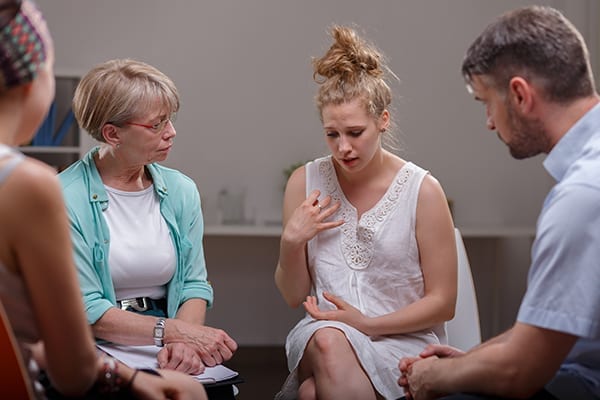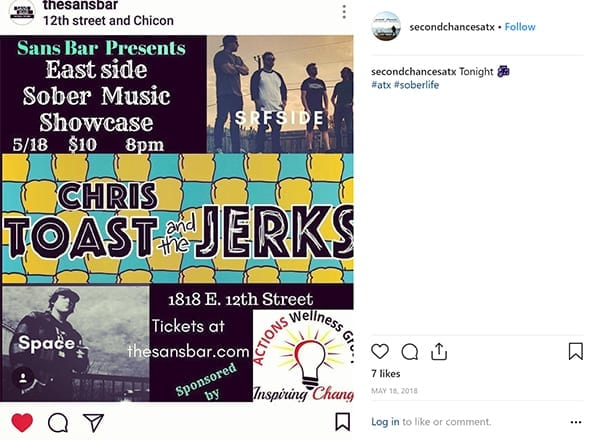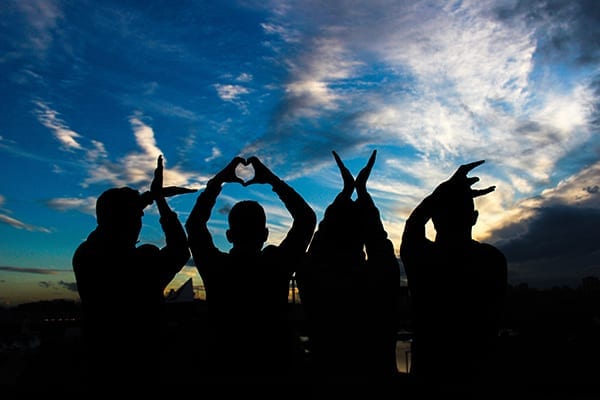Skip Ahead to Topic
Life Together
Why Do Recovery in Community?
The opposite of addiction is not sobriety. It is human connection. So claims British journalist Johann Hari, who has spent years delving into the causes of addictive behavior. His conclusion? Healthy interpersonal relationships are the key to both preventing and overcoming addiction. His words have challenged the long-held belief that addictions to drugs and alcohol are largely about self-control (namely, the addict’s lack of it) and the pleasurable effects of illicit substances.
Hari’s revelation is interesting on several levels. For starters, he has set in motion a long overdue shift in the way people within and beyond the recovery movement think about the problem of addiction and people who struggle with it. This is good news: shame is the enemy of resiliency. More than anything, those in recovery need to be resilient to deal with life’s ups and downs without relapse.
Hari’s research on human connection and addiction is noteworthy for another reason. It confirms what those in the recovery community already know. The rise of recovery residences in the 1960’s and ‘70’s came about because treatment providers saw that a person’s living environment and the relationships attached to it play a major role in recovery success. They noticed that people who returned to unhealthy living situations and enabling relationships after leaving detox were more likely to fall back into bad habits. But many addicts, then and now, had no alternative housing options. Sober living homes arose to fill that void, with the idea that, on many levels, the setting was the service.
So, it turns out that “connections, connections, connections” are as critical in addiction recovery as in business success.
But why?

People, Places, Things
The phrase “people, places, things” is familiar to anyone who has worked through an AA or NA program. The slogan serves as a reminder to avoid the people, places, and things tied to the recovering addict’s old lifestyle of substance abuse.
Who we associate with, where we go, and the things we surround ourselves with shape our thoughts, character, and choices. The dilemma that many in recovery face, however, is that they have left their whole world behind when they walked away from drugs or alcohol.
They are alone. They are hurting. They have been suddenly stripped of the places, friends and substances around which their days were organized. All that is familiar and comfortable is off-limits, if they want to get better.
How does someone rebuild her whole world? Not easily, and not alone. Here’s where a recovery residence such as Second Chances comes in.
The Setting is the Service
The model of care for homes like SCRH is based in part on tackling the monster that “starting over” can be. The home itself and the people, things and activities attached to it are meant to develop and sustain relationships that support ongoing sobriety.
What does a sober living home provide?
- A safe, clean living space. No drugs. No alcohol. No in-your-face temptation.
- A new social network. This includes other residents, mentors and friends made through larger recovery meetings and events, as well as professional guides like recovery coaches who can support residents in pursuing life and recovery goals.
- New ways to experience fun. The relationships built in sober living naturally lead to new activities and outlets the recovering addict may not have been able to take up on his own.
With sober living homes, the proof is in the pudding. Studies have shown that people with substance abuse disorders who spend time in residential homes like Second Chances that provide this kind of social support are more likely to remain sober. They are also more likely to be employed and enjoy improved mental health.

What Second Chances Brings to the Community Table
Connections, connections, connections.
Founded by a businessman with a heart for people locked in the grips of addiction, Second Chances Recovery Homes puts a high premium on making connections that serve and heal.
In House Support
Life-giving relationships start in the homes, where residents connect naturally and positively with peers who share the same recovery goals in the course of doing daily life together. Regular community meals invite residents to slow down, listen, and share what’s on their hearts and minds.
Friendly in-house contests also help to spur residents on toward their recovery goals. A series of weekly benchmarks are set (number of meetings attended, service projects completed, etc.), and residents compete to bag the much-coveted prize of $40 cash and house bragging rights. These contests are about more than just fun: residents learn life lessons about hard work, commitment and productivity that can carry over into their healing journey and future careers.
Its revolving door of special speakers further demonstrates Second Chances commitment to its residents. It’s not unusual for successful businessmen from the community to share privately at SCRH homes about their own recovery journeys. Their goal is to inspire struggling addicts, who, by virtue of their job experiences or natural gifts, are already leaders, but because of their addictions have been leading people off of cliffs rather than up mountains. The core of the speakers’ messages is this: it’s never too late to be who you might have been.

Around Town
As with any other recovery home, 12-Step meetings are a staple for support and relationship-building at SCRH. What sets Second Chances apart from other recovery residences are the quality and frequency of the other social opportunities and supports it provides.
From Recovery ATX sober parties to the popular “On Fire Bonfires” where mocktails and s’mores are served up along with a Heroin Anonymous special speaker, the opportunities to have fun, hang with friends, and further your recovery are close to endless.
Heart to Heart Coaching
Having personalized, one-on-one relational support in recovery is as important as the right kind of social network. That’s why Second Chances connects each resident with his or her own recovery coach.
Unlike a sponsor, who is usually program-specific (an AA sponsor, for example) and volunteers his time in order to help an addict work through program steps to stay sober, a recovery coach is a professional who works with clients on the big picture of their live while also personally supporting their journey to freedom from addiction. A recovery coach helps ensure each SCRH resident receives the medical, spiritual and psychiatric care he needs and is connected to the right resources for recovery. With a 12-Step sponsor and recovery coach at their sides, SCRH residents always have someone to talk to when they have the need.
Deep down, everyone hungers for to be known, loved and understood. Unmet relational needs can breed addiction, but the good news is it’s never too late to get connected and reverse that curse. The opposite of addiction, after all, is connection.


Recent Comments